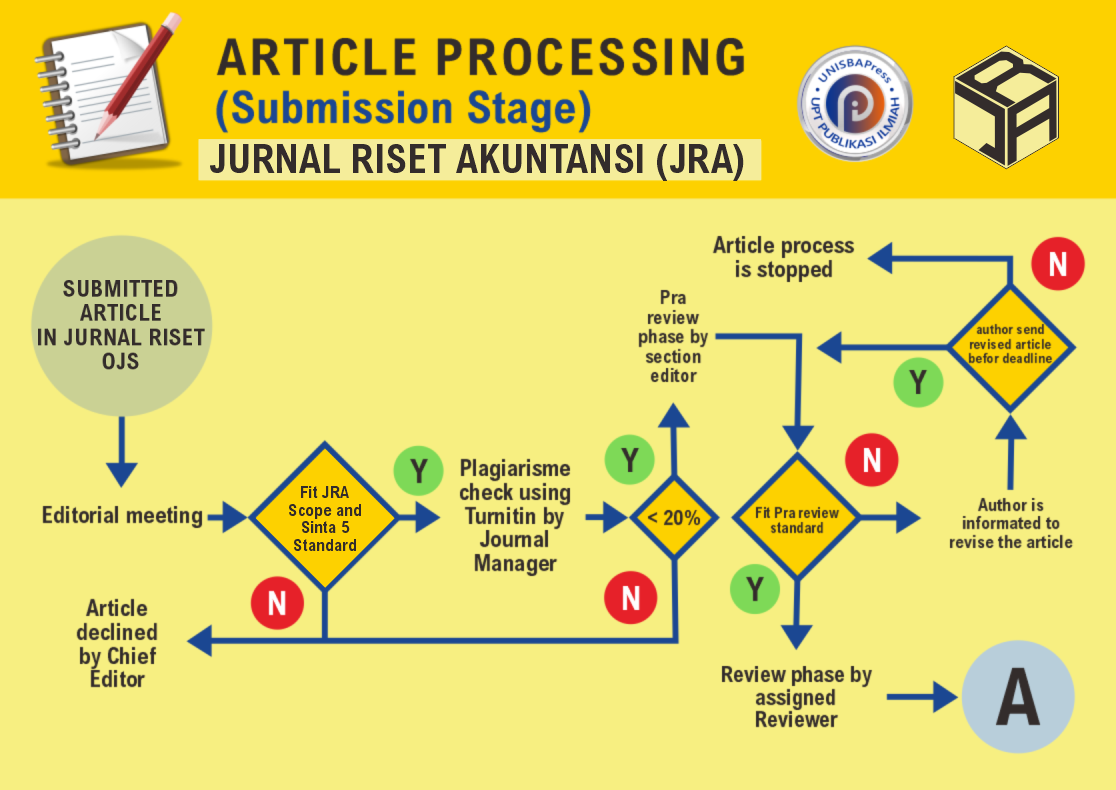Pengaruh Implementasi Intellectual Capital terhadap Keberlanjutan Usaha di Masa Pandemi
DOI:
https://doi.org/10.29313/jra.v2i2.1265Keywords:
Intellectual Capital, Keberlanjutan Usaha, UMKMAbstract
Abstract. The number of MSMEs that are on the verge of bankruptcy is a phenomenon that underlies this research. The implementation of intellectual capital is an important factor that is expected to increase business sustainability. For this reason, this study aims to examine the effect of intellectual capital on sustainability during the pandemic and determine the implementation of intellectual capital and the sustainability of MSME businesses during the pandemic. This study uses descriptive verification research methods and quantitative approaches conducted in the city of Bandung with primary data. Data were collected through questionnaires and the determination of respondents was based on non-probability sampling and purposive sampling. Based on the established criteria, questionnaires were given to parties who play a role in business operational management and parties who served as MSME business owners in the city of Bandung. The proposed hypothesis was tested using simple linear regression. The results of the study indicate that intellectual capital has an effect on business sustainability and the implementation of intellectual capital and MSMEs in Bandung City during the pandemic is said to be very good and the business sustainability of MSMEs is categorized as good. This study provides recommendations to MSMEs in Bandung City to pay more attention to better intellectual capital and increase greater influence.
Abstrak. Banyaknya UMKM yang diambang kebangkrutan merupakan fenomena yang mendari penelitian ini. Adanya implementasi intellectual capital merupakan faktor penting yang diharapkan dapat meningkatkan terjadinya keberlanjutan usaha. Untuk itu, penelitian ini bertujuan untuk menguji pengaruh intellectual capital terhadap keberlanjutan pada masa pandemi dan mengetahui implementasi intellectual capital serta keberlanjutan usaha UMKM pada masa pandemi. Penelitian ini menggunakan metode penelitian verifikatif deskriptif dan pendekatan kuantitatif yang dilakukan di Kota Bandung dengan data primer. Data yang dikumpulkan melalui penyebaran kuesioner dan penentuan responden didasarkan pada non-probability sampling dan purposive sampling. Berdasarkan kriteria yang ditetapkan, kuesioner diberikan kepada pihak-pihak yang berperan dalam manajemen operasional usaha dan pihak-pihak yang menjabat sebagai pemilik usaha UMKM di Kota Bandung. Hipotesis yang diajukan, diuji menggunakan regresi linear sederhana. Hasil penelitian menunjukkan bahwa intellectual capital berpengaruh terhadap keberlanjutan usaha dan implementasi intellectual capital serta UMKM di Kota Bandung pada masa pandemi dikatakan sangat baik serta keberlanjutan usaha UMKM dikategorikan baik. Penelitian ini memberikan rekomendasi kepada UMKM di Kota Bandung untuk lebih memperhatikan intellectual capital yang lebih baik serta meningkatkan pengaruh yang lebih besar.
References
Alwi, A. K. (2021). Langkah untuk UMKM di Saat Pandemi. Kumparan.com. https://kumparan.com/abdul-kifli-alwi/langkah-untuk-umkm-di-saat-pandemi-1wr4dJdftQX
Bontis, N., William Chua Chong, K., & Richardson, S. (2000). Intellectual capital and business performance in Malaysian industry. Journal of Intellectual Capital, 1(1), 85–100. https://doi.org/10.1108/14691930010324188
Gross-Gołacka, E., Kusterka-Jefmanska, M., & Jefmanski, B. (2020). Can Elements of Intellectual Capital Improve Business Sustainability?—The Perspective of Managers of SMEs in Poland. Sustainability, 12(1545), 1–23.
Kopnina, H., & Blewitt, J. (2015). Sustainable business : key issues (2nd ed.). London: Routledge.
Leaniz, P. M. de, & Bosque, I. R. del. (2013). Intellectual Capital and Relational capital: The Role of Sustainability in Developing Corporate Reputation. Intangible Capital, 9(1), 262–280.
Nurcholisah, K., Nurleli, & Nurfahmiyati. (2020). Effect of Intellectual Capital on Performance with Islamic Work Ethics as a Moderating Factor. 2nd Social and Humaniora Research Symposium (SoRes 2019), 409, 45–52. https://doi.org/10.2991/assehr.k.200225.011
Paulus, A. L. (2020). Perspektif Bisnis Bagi Wirausahawan; Tren dan Konteks. Yogyakarta: Expert.
Sugiyono. (2013). Metode Penelitian Kuantitatif, Kualitatif, dan Tindakan. Bandung: Alfabeta.
Sugiyono. (2017). Metode Penelitian Kuantitatif, Kualitatif, dan R&D. Bandung: Alfabeta.
Ulum, I. (2009). Intellectual Capital: Konsep dan Kajian Empiris. Yogyakarta: Graha Ilmu.
Wasiluk, K. L. (2013). Beyond eco-efficiency : understanding CS through the IC practice lens. Journal of Intellectual Capital, 14(1), 102–126. https://doi.org/10.1108/14691931311289048
Winarto, W. W. A. (2020). Perspektif Akuntansi atas Intellectual Capital. Jurnal Bisnis Dan Akuntansi Unsurya, 5(1), 50–60.
Xu, J., & Wang, B. (2018). Intellectual Capital , Financial Performance and Companies ’ Sustainable Growth : Evidence from the Korean Manufacturing Industry. Sustainability, 10(12), 1–15. https://doi.org/10.3390/su10124651













